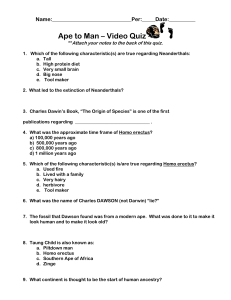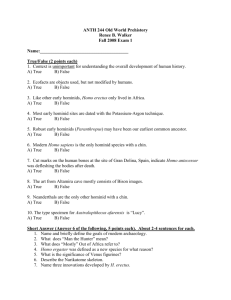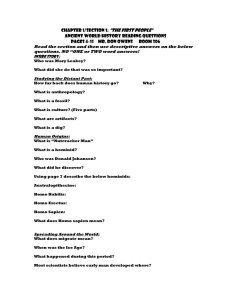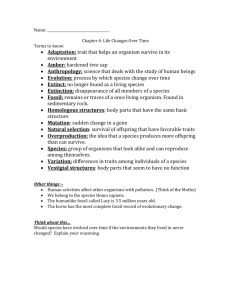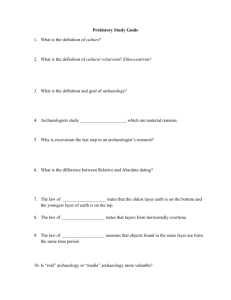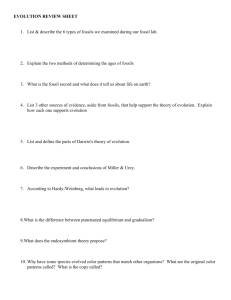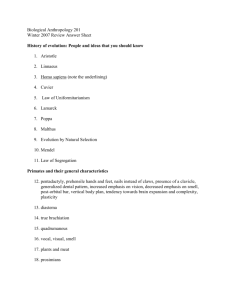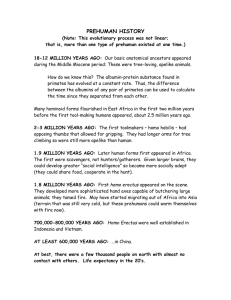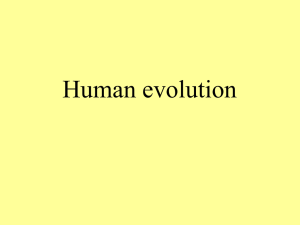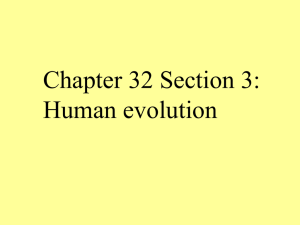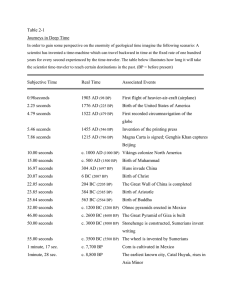Becoming Human Question handout.
advertisement
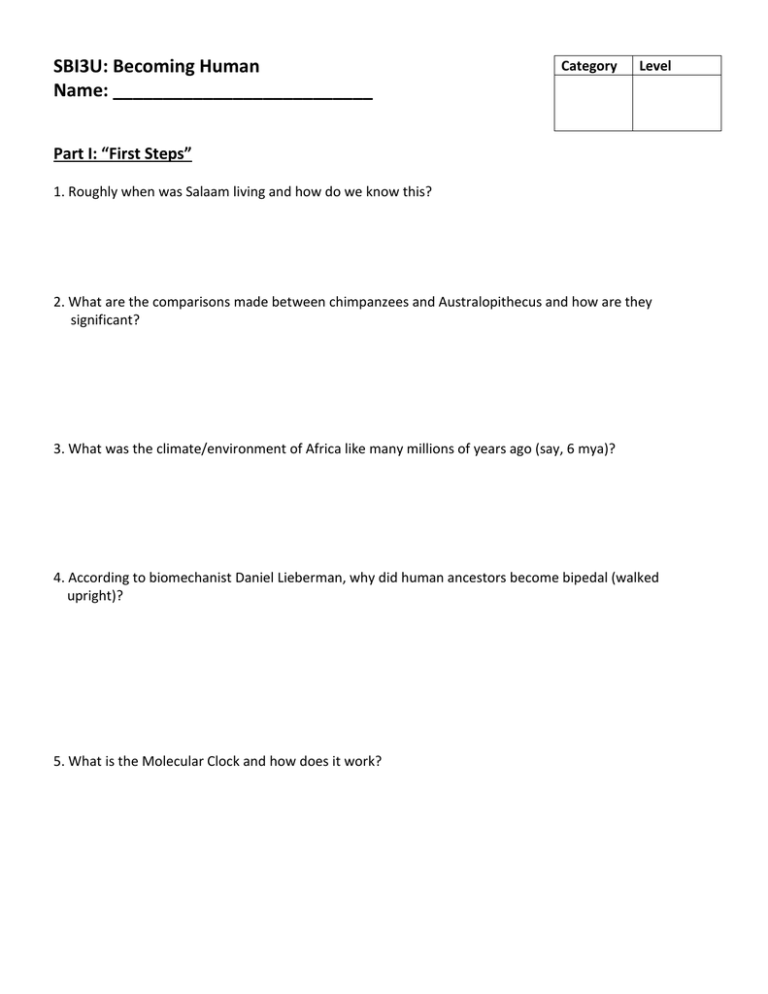
SBI3U: Becoming Human Name: __________________________ Category Level Part I: “First Steps” 1. Roughly when was Salaam living and how do we know this? 2. What are the comparisons made between chimpanzees and Australopithecus and how are they significant? 3. What was the climate/environment of Africa like many millions of years ago (say, 6 mya)? 4. According to biomechanist Daniel Lieberman, why did human ancestors become bipedal (walked upright)? 5. What is the Molecular Clock and how does it work? 6. What was the significance of the discovery of Sahlenthropus Tchadensis? 7. What evidence is used to suggest that brain development was happening in early human ancestors? 8. What was the climate of Africa like roughly 3 million years ago to 1 ½ million years ago? 9. How are these latest discoveries being used to challenge traditional ideas of human evolution? Part II: “Birth of Humanity” 1. What species appeared about 2 million years ago and what were the significant changes from earlier species? 2. What kinds of “big questions” can be answered with a nearly complete ancient skeleton? 3. What is a “brain endocast” and what can be learned from them? 4. In what ways are stone tools indicative of an increase in the “thinking power” of Homo erectus? 5. How may the deeply social aspects of modern humans be explained through evolutionary developments? 6. When did Homo erectus leave Africa and why? 7. What is Homo floresiensis (or The Hobbit)? Part III: “Last Human Standing” 1. In what order of descent did the species of Homo overtake one another and when? 2. What was discovered in the caves at Atapuerca, in northern Spain and what does this say about archaic Homo sapiens (Homo heidelbergensis in this case)? 3. What is “Excalibur” and what did it signify? 4. In what ways did our ideas about Homo neandertalensis change as the 20th century proceeded? 5. What recent discovery in the Meuse Valley, Belgium, helped to refine our views of Neanderthals? 6. What kind of research is going at the Max Planck Institute in Leipzig, Germany, regarding evolutionary studies? 7. Why are children’s teeth so valuable to archaeologists? 8. Why was hunting such a risky business for Neanderthals? 9. Why did Neanderthals go extinct about 25,000 years ago? 10. What is “the bottleneck effect”?
